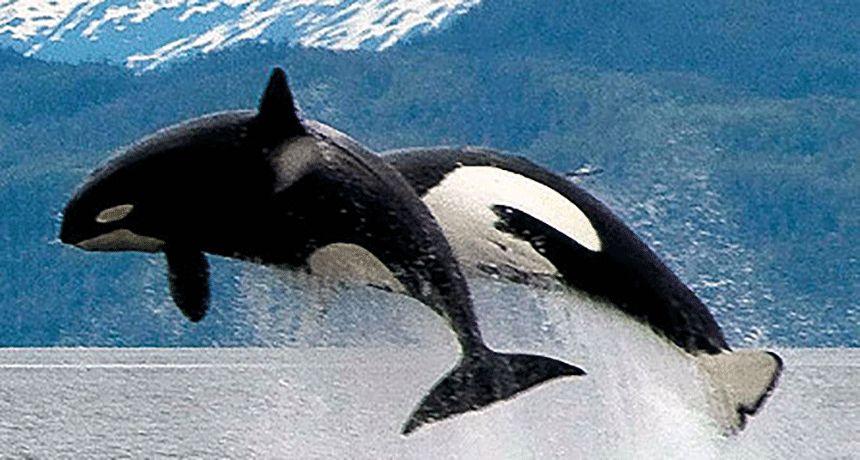Earth
-
 Environment
EnvironmentFlu river
Rivers polluted with Tamiflu could help a resistant flu strain develop in birds.
-
 Environment
EnvironmentA gassy threat from above
In Earth’s atmosphere, nitrous oxide threatens the ozone layer.
-
 Animals
AnimalsA grim future for some killer whales
An oil spill off the U.S. coast 20 years ago still threatens marine life.
-
 Environment
EnvironmentSpringing forward
Climate change affects the timing of flowering, migration and other natural cycles, meaning spring is coming earlier in many parts of the world.
-
 Animals
AnimalsBringing fish back up to size
Changing the way we fish may help rescue a population's shrinking fish.
-
 Environment
EnvironmentGetting the dirt on carbon
The circle of life continues thanks to the carbon cycle.
By Susan Gaidos -
 Animals
AnimalsSponges’ secret weapon
An aquatic animal provides a possible new kind of disease resistance.
-
 Earth
EarthAntarctica warms, which threatens penguins
Unexpected rates of warming threaten to change Antarctica and pose a threat to the survival of some of its penguins.
By Susan Gaidos -
 Earth
EarthScience loses out when ice caps melt
Tropical glaciers are vanishing at an especially rapid pace—and taking valuable climate records with them.
By Susan Gaidos -
 Environment
EnvironmentMood-boosting drugs make unhappy fish
Drugs called antidepressants find their way into lakes and streams, affecting the behavior of fish living there in unexpected ways.
-
 Fossils
FossilsSouth America’s sticky tar pits
The fossil-rich tar pits of Venezuela may rival those in Southern California.
By Sid Perkins -
 Agriculture
AgricultureFarms sprout in cities
The farms of the future may be where you would least expect to find them -- in towering skyscrapers in some of the world's largest cities.